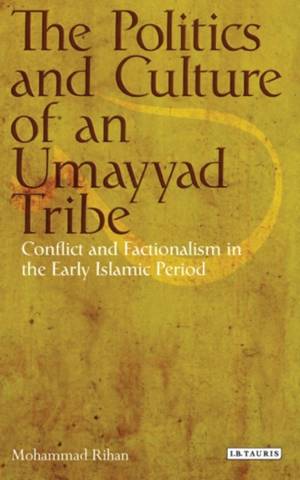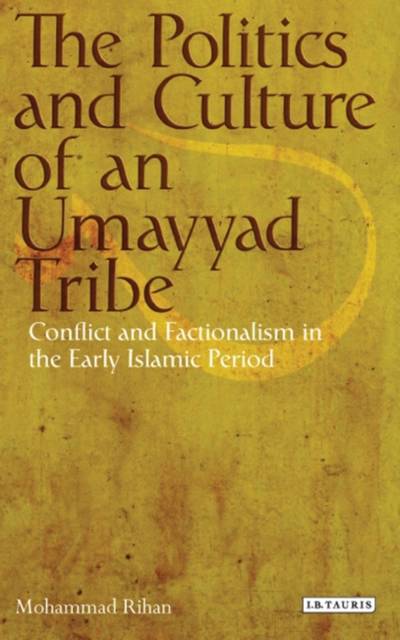
- Retrait gratuit dans votre magasin Club
- 7.000.000 titres dans notre catalogue
- Payer en toute sécurité
- Toujours un magasin près de chez vous
- Retrait gratuit dans votre magasin Club
- 7.000.0000 titres dans notre catalogue
- Payer en toute sécurité
- Toujours un magasin près de chez vous
The Politics and Culture of an Umayyad Tribe
Conflict and Factionalism in the Early Islamic Period
Mohammad Rihan
271,45 €
+ 542 points
Description
The Umayyad caliphate, ruling over much of what is now the modern Middle East after the death of the Prophet Muhammad, governe from Damascus from 661 to750CE, when they were expelled by the Abbasids. Here, Mohammad Rihan sheds light on the tribal system of this empir, by looking at one of its Syrian tribes; the 'Amila, based around today's Jabal 'Amil in southern Lebanon. Using this tribe as a lens through which to examine the wider Umayyad world, he looks at the political structures and conflicts that prevailed at the time, seeking to nuance the understanding of the relationship between the tribes and the ruling elite. For Rihan, early Islamic political history can only be understood in the context of the tribal history. This book thus illustrates how the political and social milieu of the 'Amila tribe sheds light on the wider history of the Umayyad world. Utilizing a wide range of sources, from the books of genealogies to poetry, Rihan expertly portrays Umayyad political life. First providing a background on 'Amila's tribal structure and its functions and dynamics, Rihan then presents the pre-Islamic past of the tribe.
Building on this, he then investigates the role the 'Amila played in the emergence of the Umayyad state to understand the ways in which political life developed for the tribes and their relations with those holding political power in the region. By exploring the literature, culture, kinship structures and the socio-political conditions of the tribe, this book highlights the ways in which alliances and divisions shifted and were used by caliphs of the period and offers new insights into the Middle East at a pivotal point in its early and medieval history. This historical analysis thus not only illuminates the political condition of the Umayyad world, but also investigates the ever-important relationship between tribal political structures and state-based rule.
Building on this, he then investigates the role the 'Amila played in the emergence of the Umayyad state to understand the ways in which political life developed for the tribes and their relations with those holding political power in the region. By exploring the literature, culture, kinship structures and the socio-political conditions of the tribe, this book highlights the ways in which alliances and divisions shifted and were used by caliphs of the period and offers new insights into the Middle East at a pivotal point in its early and medieval history. This historical analysis thus not only illuminates the political condition of the Umayyad world, but also investigates the ever-important relationship between tribal political structures and state-based rule.
Spécifications
Parties prenantes
- Auteur(s) :
- Editeur:
Contenu
- Nombre de pages :
- 248
- Langue:
- Anglais
- Collection :
Caractéristiques
- EAN:
- 9781780765648
- Date de parution :
- 04-06-14
- Format:
- Livre relié
- Format numérique:
- Genaaid
- Dimensions :
- 142 mm x 218 mm
- Poids :
- 453 g

Les avis
Nous publions uniquement les avis qui respectent les conditions requises. Consultez nos conditions pour les avis.






